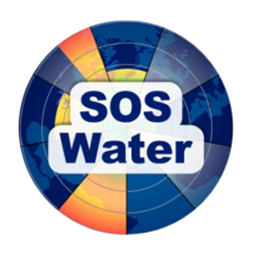Publications & Press
Scientific Papers
& Reports
The insights gained from our research are shaping scientific discourse and policy discussions on water sustainability. Below, you can explore our latest scientific publications, project deliverables, and policy briefs, which summarize our findings in greater detail.
Rethinking energy planning to mitigate the impacts of African hydropower
Nature Sustainability
Low flow sensitivity to water withdrawals in Central and Southwestern Europe under 2 K global warming
Environmental Research Letters
Water circles — a tool to assess and communicate the water cycle
Environmental Research Letters
The use of GRDC gauging stations for calibrating large-scale hydrological models
Earth System Science Data (essd)
Balancing Sediment Connectivity and Energy Production via Optimized Reservoir Sediment Management Strategies
Water Resources Research
Vulnerability assessment for climate adaptation planning in a Mediterranean basin.
Hydrological Sciences Journal
Deliverables
The SOS-Water project produces a wide range of deliverables designed to support both the scientific community and decision-makers in water management. These outputs include technical reports, case study analyses, modelling frameworks, stakeholder engagement guidelines, and policy-oriented briefs. Each deliverable captures a key step in advancing our integrated approach to defining the Safe Operating Space for water resources, ensuring that knowledge generated is actionable, transparent, and accessible.
Below, you can explore the project’s official deliverables, which document our progress, methods, and results in detail.
D5.2
Final Evaluation of Safe Operating Space
D5.1
Preliminary Evaluation of Safe Operating Space
D4.2
Introducing innovative water indicators towards a system of indicators building frameworks
D3.3
Basin-scale EO data integration
D3.2
Improved EO application prototypes
D 6.1
Communication, Dissemination, and Exploitation Plan
D 7.2
Data Management Plan
D 3.1
Data inventory and EO data needs for water resources monitoring
D 4.1
Review of water indicators and gaps identified
Open Data & Tools
Interactive Dashboards
for Water Monitoring
One of the key technological products of SOS-Water is the development of interactive dashboards that allow users to visualize, analyze, and interpret complex water-related data.
User-friendly platforms providing information on key factors.
- Water availability and scarcity across different regions.
- Water quality indicators, including pollutants, salinity levels, and emerging contaminants.
- Climate risks, such as flooding, drought cycles, and extreme weather events.
- Policy impact assessments, illustrating how different water management strategies can shape future sustainability.
These dashboards also enable scenario simulations that predict how water systems will evolve under different climate, economic, and policy conditions. This is particularly useful for decision-makers, who can use these tools to test the effectiveness of water conservation policies, infrastructure investments, and emergency response strategies.
Data & Open-Access Resources
Recognising the importance of open science, the SOS-WaterProject provides a comprehensive database of hydrological, climate, and socio-economic data gathered from our research and case studies. These resources are freely available for researchers, policymakers, water managers, and the general public, fostering collaboration and enabling further innovation in sustainable water management.
Our open-access resources:
- Downloadable datasets from our hydrological models, AI simulations, and case study findings.
- Geospatial data on water stress indicators, climate change projections, and ecological impacts.
- Technical documentation and methodological guidelines to help researchers integrateSOS-Water models into their own studies.
- Policy brief sand governance frameworks, designed to support evidence-based decision-making at local, national, and international levels.
- Through these open-access materials, we invite scientists, government agencies, and civil society organizations to leverage our findings and develop their own water security solutions.
Balancing sediment connectivity and energy production via optimized reservoir sediment management strategies.
Download DatasetRethinking energy planning to mitigate environmental and climatic impacts of future African hydropower.
Download DatasetHow You Can Use
SOS-Water Insights
The findings and tools developed by SOS-Water are designed to serve a wide range of stakeholders, from government officials and scientists to businesses and community leaders.
For Policymakers:
- Our research helps inform national and regional water strategies, guiding decisions on infrastructure investment, climate adaptation, and water conservation policies. By integrating SOS-Water insights into existing policy frameworks, governments can proactively address water-related risks and ensure long-term resource sustainability.
For Researchers:
- The SOS-Water models and datasets are valuable tools for advancing scientific understanding of hydrological dynamics, climate change impacts, and sustainable water governance. Researchers can use our data to test new hypotheses, validate predictive models, and contribute to global water security research.
For Industries & Communities:
- Businesses, utilities, and local communities can use SOS-Water best practices to enhance water efficiency, reduce pollution, and implement nature-based solutions for water conservation. Agricultural producers, energy companies, and urban planners can apply these insights to minimize their water footprint and improve resilience to climate variability.
By making our data, tools, and insights widely available, SOS-Water fosters a global movement towards more sustainable, science-driven water management.
Dissemination Activities
SOS-Water on YouTube1
How Can We Stay Within the Safe Operating Space for Water?
Insights from the SOS-Water Framework
The first SOS-WATER webinar focuses on how modelling and stakeholder engagement come together to define a Safe Operating Space for water. Project experts from IIASA and Politecnico di Milano demonstrate how integrated water system models are applied across European and international river basins and how collaboration with local stakeholders helps co-create management pathways that balance environmental, social, and economic water needs within the SOS-WATER framework.
2
Leveraging Earth Observation for Water Resource Management
In this second SOS-WATER webinar, experts from FutureWater and Eawag explore how Earth Observation (EO) technologies are transforming water resource management — from monitoring and modelling to decision-making. The session highlights how EO data are integrated into the SOS-WATER framework, showcasing case studies and innovations that enhance understanding of water systems and support more informed policy and management decisions
Press Pack
SOS-Water
Summary
DownloadSOS-Water
Logo
DownloadProject Coordinator Taher Kahil Webpage
ExploreSOS-Water on Cordis
Explore


